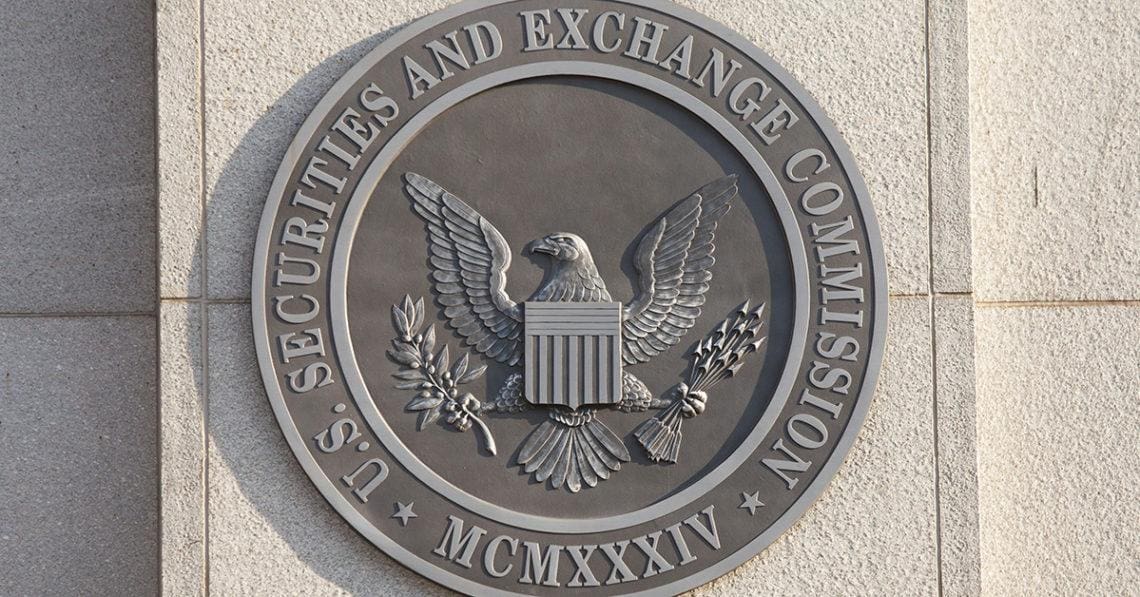A newly issued SEC Division of Examinations risk alert indicates that newly registered advisers may be failing to uphold several of their legally mandated requirements. Nutter’s Mark Tarallo digs into the agency’s alert — and what advisers need to know.
For the past several years, the SEC’s Division of Examinations has prioritized examining newly registered advisers within a reasonable period of time after the adviser’s registration with the commission has become effective. This is to ensure that newly registered advisers get off on the right foot with respect to compliance requirements and to promptly correct any deficiencies.
As part of an examination of an adviser, the division will request information and documents for a defined review period to assess the adviser’s compliance with the Investment Advisers Act of 1940 and to determine whether the adviser’s representations and disclosures made to its clients and in SEC filings are consistent with the adviser’s actual practices.
In March, the division issued a risk alert indicating it had identified a pattern of noncompliance regarding rules for newly registered advisers. While the risk alert represents the views of the division, it does not have the effect of a rule, regulation or statement of the SEC, nor does it alter or amend applicable law or create new or additional obligations. However, it does provide insight into areas the agency views as important, and registered investment advisers are well-served by treating the topics covered in the risk alert as a preview of what an examination might focus on.
The risk alert identified three areas in particular that the division staff’s review showed to be problematic. Among other things, the staff found repeated failures in the areas of compliance policies and procedures, disclosure documents and filings and marketing.
SEC Proposes Slate of New Cybersecurity Regulations. Is Your Firm Ready?
The SEC is continuing its focus on cybersecurity regulations by announcing three new proposed rules and re-opening the comment period on an additional proposed rule from last year. Each of the proposed rules focuses on entities in the financial sector, including broker-dealers, investment advisers, investment companies and other entities regulated by the SEC.
Read moreDetailsCompliance policies and procedures
Adviser’s Act Rule 206 (4)-7 is sometimes referred to as the compliance rule. The compliance rule says an investment adviser must adopt policies and procedures that are designed to ensure compliance with the Advisers Act, regularly review those policies and procedures and designate a supervised person to administer those policies and procedures.
The staff observed compliance policies and procedures that did not adequately address certain risk areas applicable to firms, such as portfolio management and fee billing; omitted procedures to enforce stated policies, such as stating the advisers’ policy is to seek best execution but not having any procedures to evaluate periodically and systematically the execution quality of the broker-dealers executing their clients’ transactions; and/or were not followed by advisory personnel, typically because the personnel were not aware of the policies or procedures or the policies or procedures were not consistent with their businesses or operations.
Additionally, the staff observed advisers’ annual compliance reviews that did not address the adequacy of the advisers’ policies and procedures and the effectiveness of their implementation. Specifically, the staff observed advisers that, among other failings:
- Used off-the-shelf compliance manuals that were not tailored for consistency with the advisers’ operations and business lines
- May not have devoted sufficient resources to comply with regulatory requirements and their own policies and procedures (e.g., advisers may have assigned additional and unrelated responsibilities to the chief compliance officer (“CCO”), resulting in limited time for the CCO to dedicate to compliance), or to ensure compliance personnel understood actual business practices
- Had undisclosed conflicts of interest created by the multiple roles and responsibilities of advisory personnel carrying out the assigned duties, and these conflicts were not mitigated
- Did not have adequate business continuity plans, including succession plans
Advisers must follow all of their own compliance procedures set out in their compliance manual, even if they believe following them is optional because “those items don’t apply to us.” By including them in the manual, they are committing to follow them, and failing to do so is a violation of the compliance rule. Advisers must spend more time tailoring their compliance manual to meet their specific business model and removing compliance obligations that are not consistent with the business model, so that compliance follows naturally from the business operations. Advisers must also make sure that there is a process in place to disseminate and discuss compliance policies with employees and to make sure they are understood. In addition, it is not sufficient to simply have policies in place — firms must have robust review and evaluation procedures (at least annually) to make sure that the policies are adequate and that employees are following them. The CCO must be a part of this process, so that the CCO has a clear understanding of the adviser’s business model and operations, and the CCO should be involved in every aspect of operations. The primary focus for the person designated as COO must be the compliance function, and they should not have additional job requirements (such as marketing) that bring them into conflict with this obligation to focus first on compliance.
Disclosure documents and filings
Advisers Act Rule204-3 is sometimes referred to as the brochure rule and requires each SEC-registered adviser to provide its clients and prospective clients with a written disclosure document before or at the time of entering into a contract with the client and annually thereafter.
An adviser generally may comply with this brochure requirement by providing its Form ADV, Part 2A. Similarly, Advisers Act Rule 204-5 requires each SEC-registered adviser to deliver Form CRS (a brief relationship summary) to its retail clients at the beginning of a relationship with the client and when amendments to the relationship summary are required to be made, a different new account is opened and certain other events occur (e.g., a retirement account is rolled over).
Advisers also must make Form CRS available on the advisers’ website, if the adviser has one. Advisers Act Rule 204-2(a)(14) also requires an adviser to: (1) maintain a copy of each brochure and relationship summary and each amendment or revision to these disclosure documents that was given or sent to clients or prospective clients; and (2) maintain a record of the dates on which such disclosure documents were given or offered to be given to any client or prospective client who subsequently becomes a client. These documents also must be filed electronically with the Investment Adviser Registration Depository and updated when material changes occur.
The staff observed required disclosure documents that contained omissions or inaccurate information and untimely filings (i.e., material or annual form updates were not made within prescribed timeframes or at all). The disclosure omissions and inaccuracies were related to advisers’:
- Fees and compensation
- Business or operations (including affiliates, other relationships, number of clients and assets under management)
- Services offered to clients, such as disclosure regarding advisers’ investment strategy (including the use of models), aggregate trading and account reviews
- Disciplinary information
- Websites and social media accounts
- Conflicts of interest
It is critical for CCOs, counsel and firm management to carefully review all public disclosures to ensure that they accurately reflect the adviser’s business model and processes. Creating a checklist of items to be included in filings or disclosure documents and reviewing it prior to each filing or disclosure, rather than simply reviewing prior filings to identify what has changed, will likely increase accuracy of reporting. Advisers should create a “workflow” for each disclosure or filing document showing a process of creation, review and approval by multiple parties, so that there is a greater likelihood of identifying errors. Advisers must be familiar with all of the disclosure requirements and have a policy in place to regularly review what is required to make sure that filings and disclosure documents are accurate.
Marketing
While noting that many of the examinations analyzed for the risk alert occurred prior to the effective date of the amended marketing rule, the division staff found adviser marketing materials that appeared to contain false or misleading information, including inaccurate information about advisory personnel professional experience or credentials, third-party rankings and performance. Advisers were also unable to substantiate certain factual claims. These areas will be under additional scrutiny given that compliance with the amended marketing rule is now required.
Advisors need to understand the marketing rule and all of its requirements. Again, creating a checklist of required/prohibited disclosures to review marketing materials, creating workflows for review and approval of marketing materials, and creating a robust review and evaluation process for existing policies will all serve to foster compliance with the marketing rule and its related obligations. Given that the marketing rule has been effective for some time, advisers should expect that examinations will focus heavily on this area.




 Mark J. Tarallo
Mark J. Tarallo 








